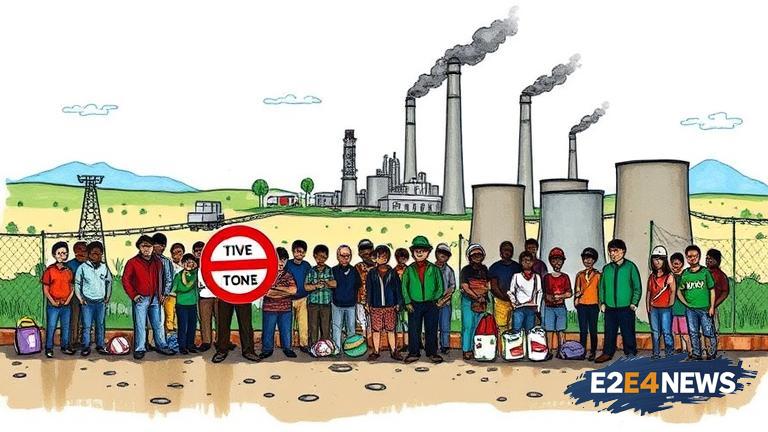The Parkes community in New South Wales, Australia, has come together to express their strong opposition to a proposed waste-to-energy incinerator. The project, which aims to convert waste into energy, has raised concerns among residents who fear it could have severe health and environmental consequences. The incinerator, if approved, would be built in the vicinity of the town, posing a potential threat to the local air and water quality. Residents are worried that the incinerator could release toxic pollutants into the air, including dioxins and heavy metals, which could have devastating effects on human health. The community is also concerned about the potential impact on the local environment, including the nearby waterways and agricultural land. The proposal has sparked a heated debate, with many residents arguing that the incinerator would be a step backwards for the town, which has been working to promote sustainability and reduce waste. Others have expressed concerns about the lack of transparency and consultation from the project’s proponents, who have been accused of failing to provide adequate information about the potential risks and benefits of the incinerator. Despite the controversy, the project’s proponents argue that the incinerator would provide a safe and efficient way to manage waste, while also generating energy. However, the community remains skeptical, citing examples of similar incinerators that have been linked to health problems and environmental damage. The Parkes community has vowed to continue fighting against the proposal, with many residents attending public meetings and rallies to voice their opposition. Local business owners have also spoken out against the incinerator, citing concerns about the potential impact on tourism and the local economy. The controversy has sparked a wider debate about the role of waste-to-energy incinerators in Australia, with many experts arguing that they are not a viable solution to the country’s waste management problems. Instead, they argue that the focus should be on reducing waste and increasing recycling rates. The Australian government has been urged to take a closer look at the proposal and consider the concerns of the Parkes community. The community’s opposition to the incinerator has been supported by local politicians, who have pledged to work with residents to find alternative solutions to the town’s waste management needs. As the debate continues, the Parkes community remains committed to fighting against the incinerator, which they believe would be a disaster for the town and its residents. The community’s determination has inspired other towns and cities across Australia to take a closer look at their own waste management practices and consider more sustainable solutions. The proposal has also raised questions about the regulation of waste-to-energy incinerators in Australia, with many arguing that the current framework is inadequate and fails to protect the health and wellbeing of communities. The Parkes community’s fight against the incinerator is a testament to the power of grassroots activism and the importance of community engagement in decision-making processes. As the community continues to voice its opposition, it remains to be seen whether the proposal will be approved or rejected. One thing is certain, however: the Parkes community will not give up its fight against the incinerator without a fight. The community’s concerns have been echoed by environmental groups, who argue that the incinerator would be a step backwards for Australia’s waste management practices. The proposal has also sparked concerns about the potential impact on the local wildlife, including birds and other animals that could be affected by the incinerator’s emissions. The community’s opposition to the incinerator has been supported by scientific evidence, which suggests that waste-to-energy incinerators can have severe health and environmental consequences. The Parkes community’s fight against the incinerator is a reminder that community engagement and participation are essential in decision-making processes, particularly when it comes to proposals that have the potential to impact public health and the environment.





